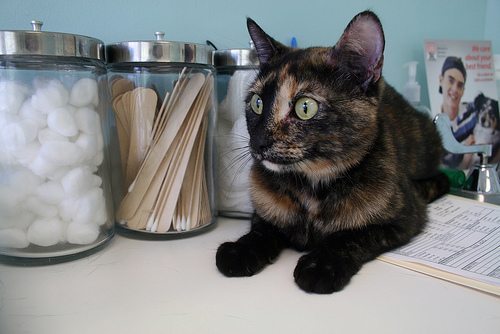There is a belief that dates back to ancient times that consuming an extract from the same organ will enhance that specific body part or organ. Whole food concentrates are comprised of glandular therapies and supplements that help feed organs, glands and tissues in pets. The hope is the tissue extracts will help improve the function of the corresponding organ.
As modern civilization advanced, the practice was accepted to varying degrees, with the development of understanding the actions of hormones on the body, known as endocrinology. Science has begun to embrace glandular therapy as a form of treatment in medicine, particularly as extraction and analytical methods were improved, including:
• Pharmaceutical doses of pure hormones
• Pharmaceutical agents for therapies
• Both natural and synthetic products
Medical professionals, nutritionists and physiologists generally agree that other tissue ingredients like protein, fats and carbohydrates are not absorbed intact, and are broken down into amino acids, fatty acids and simple sugars, respectively. As a result, scientists abandoned glandular therapy in favor of traditional drug treatments. The argument was a lack of evidence that large molecules were intact when absorbed across the intestinal wall, and there was no evidence that glandular extracts had any healing effects or could target any specific internal organs.
Eventually, studies done using dye showed that enzymes, hormones, peptides and proteins in fact are absorbed intact and are able to target specific tissues and organs. In fact, organs in distress or traumatized were able to absorb the nutrients, leading to rapid healing. This observation has caused a resurgence in interest in whole food concentrates and glandular therapies for both pets and humans to heal and repair the body.
Veterinarians and holistic practitioners often use whole food concentrates while employing glandular therapies for degenerative disorders and immune system problems in lieu of conventional drug treatments. Some of the most common are liver, thyroid and pancreas therapies. Whole glandular tissues and whole food concentrates are excellent sources of proteins, fats, enzymes steroids and nutraceuticals. Low doses of supplemental hormones and enzymes appear to have the ability to slow down the progression of degenerative diseases, promoting the healing of damaged tissue. Glandular therapy has been effective in treating immune system diseases and specific organ dysfunctions in animals.
Another example of enzyme supplementation used by veterinarians is pancreatic tissue extracts, used for a condition in dogs known as Exocrine Pancreatic Deficiency. The enzymes are absorbed and recirculated in the body, contributing other reactions from other organs. There are a number of holistic veterinarians that use glandular therapies for treatments in dogs and cats. Freeze-dried concentrates of specific organs and tissues are used to treat degenerative conditions.
Science continues to show the potential for whole food concentrates and glandular therapy to heal a variety of degenerative conditions and immune system disorders. There are generally no side effects from this type of supplementation and treatment. Typically, a small dose is given to avoid any allergic reactions from patient sensitivities before administering a full dose regimen.
One of the key organs for metabolism is the thyroid gland. It regulates metabolism by releasing hormones that control energy production in the body’s cells. Administration of thyroid extract helps cells eliminate cellular waste and speeds up their restorative functions. A healthy thyroid is an important prerequisite to a healthy immune system in both animals and pets.
Whole tissue and glandular therapy supplementation may not be warranted when dealing with severe liver failure, kidney disease or acute infections. The transfer of viruses is a major concern, so using tissues from certified sources including freeze-dried supplements is key to reduce the risk and ensure predictable results. Glandular therapy and whole food concentrates may be combined with traditional veterinary medicine; however it becomes difficult to isolate which treatment is producing the results. Talk to your veterinarian about whole food concentrates, enzymes and glandular therapies for your pet.
Reviewed and Approved by Dr. David L. Roberts, DVM
Photo: Courtesy of theogeo via Flickr (CC by 2.0)


